Code of Ethics and Conduct for judges in Vietnam
What is included in the Code of Ethics and Conduct for judges in Vietnam? - Ngoc Tuyet (Binh Phuoc, Vietnam)
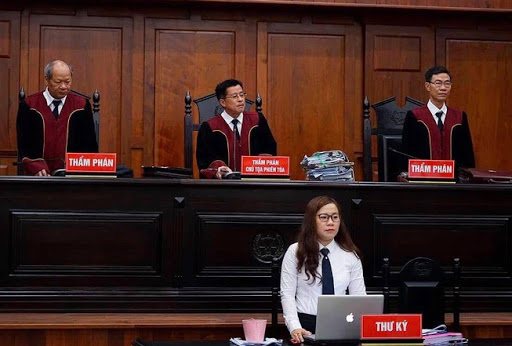
Code of Ethics and Conduct for judges in Vietnam (Internet image)
The Code of Ethics and Conduct for judges in Vietnam are promulgated together with Decision 87/QD-HDTC, specifically as follows:
1. Subjects of application of the Judge's Code of Ethics and Conduct in Vietnam
- The Judges' Code of Ethics and Conduct (hereinafter referred to as the Code for short) prescribes the Judges' ethical standards and codes of conduct.
- The Code applies to Judges working at all levels in people's courts and military courts; it is also recommended that it apply to judges who have retired or transferred to another job.
- The Code is the basis for the National Council for Selection and Supervision of Judges to supervise and evaluate the ethics and conduct of judges who are re-appointed or appointed to another judge rank. and is one of the bases for considering commending and disciplining judges.
2. Code of Ethics and Conduct for judges in Vietnam
2.1. Code of Ethics for judges in Vietnam
* Independence:
- In the course of settling the case, the judges make their own decisions on the basis of their assessment of the facts of the case and the evidence presented, and they only obey the law; they must preserve their professional courage to not be affected by any interference.
- Judges must be independent from members of the Trial Panel; independent from other proceedings; independent of factors affecting them from inside and outside the Court.
- Judges must not interfere in the procedural activities of members of the Trial Panel and other procedure-conducting persons.
* Integrity:
- Judges must have integrity, be clean, straightforward, and honest.
- Judges must not take advantage of their positions to seek benefits for themselves or others; they may not allow family members, court officials, or civil servants under their management to make demands or receive money, property, or other benefits from anyone for work-related reasons that the judge deals with.
- Judges must publicize personal income as prescribed by law.
* Impartiality and objectivity:
- Judges must be impartial and objective; they must perform their duties properly, not for personal gain, without favoring any party in the case.
- Judges must base themselves on documents and evidence that have been publicly examined at the court hearing, the results of the litigation at the court hearing, the provisions of law, custom, similarity of law, the basic principles of law, case law, and fairness to solve all problems of the case.
- The judge must not make any statements or comments at the court hearing, at a meeting, in public, or in the media that affect the impartial and objective settlement of the case.
* Fairness and equality:
Judges have the responsibility to ensure fairness and equality so that procedure participants can fully exercise their rights and perform their obligations in the process of settling cases at court.
- In the process of settling the case, the judge must and will not allow acts of inequality or discrimination against ethnicity, gender, belief, religion, social class, education level, occupation, social status, form of ownership, and economic composition of individuals and legal entities.
* Correctness:
- In all of their activities, judges must behave properly, politely, and cautiously; maintain order and dignity during the proceedings; and always show patience and kindness towards the accused, litigants, and other participants in the proceedings.
- At court hearings, meetings, or in procedural documents, judges must not make statements that offend others.
* Devotion and without delay:
- Judges must be dedicated to their work and devote themselves to the performance of judicial duties in order to quickly resolve the assigned cases.
- When dealing with cases, judges must absolutely comply with the provisions of the law, do not let the cases exceed the statutory deadline for subjective reasons.
* Competence and diligence:
- Judges must regularly study, practice, and accumulate experience to improve their legal knowledge, professional qualifications, adjudication skills, professional bravery, and professional abilities.
- Judges must always update themselves with information to fully, timely, and deeply grasp the development of the law, important issues of domestic and international political, economic, and social life, and support the most correct application of the law, in accordance with reason.
- Judges must diligently perform their assigned tasks, actively working with the spirit of "doing all the work, not working all the time".
2.2. Code of Conduct for judges in Vietnam
* Behavior when performing tasks:
What judges must do:
Handling the assigned cases in accordance with the provisions of law;
+ Ensuring democracy, rigor, and objectivity in handling cases; listening to and respecting the opinions of procedure-conducting persons and procedure participants;
+ Explaining, guiding, and creating favorable conditions for procedure-conducting persons and procedure participants to properly perform their rights and obligations in accordance with law;
+ Contacting agencies, organizations, and individuals related to the case that they are competent to settle in the right place;
+ Refusing to conduct legal proceedings in accordance with the law;
+ Detecting and recommending to competent agencies that they consider amending, supplementing, or canceling legal documents that are contrary to the Constitution, laws, or resolutions of the National Assembly; and ordinances and resolutions of the National Assembly Standing Committee to ensure the lawful rights and interests of agencies, organizations, and individuals.
What judges can't do:
+ Things that are not allowed to do by law;
+ Counseling the accused, defendants, involved parties, and other procedure participants to make the settlement of the case not in accordance with the provisions of law;
+ Illegally intervening in the settlement of the case or taking advantage of his or her influence to influence the person responsible for the settlement of the case;
+ Taking the case file or documents in the case file out of the agency, if not for the assigned task or without the consent of the competent person;
+ Contacting the accused, defendants, litigants, or other procedure participants in cases that they have the authority to settle at the wrong places;
+ Harassing, delaying, and causing difficulties and troubles to people, the accused, defendants, litigants, other procedure participants, and procedure-conducting persons;
+ Pursuing and suggesting to the accused, defendants, litigants, other procedure participants, and procedure-conducting persons to provide documents, declare and present facts unbiased and truthful;
+ Disclosing state secrets and work secrets of themselves, cadres, and civil servants of the Court and other relevant agencies;
+ Disclosing professional secrets, business secrets, personal secrets, family secrets of the accused, defendants, litigants, and other procedure participants, unless otherwise provided for by law.
* Behavior at the office:
What judges must do:
+ Properly performing assigned tasks and powers and taking responsibility for their decisions;
+ Maintaining unity in agencies and units; respecting and implementing the agency's democratic regulations; promoting the democracy, experience, and creativity of cadres and civil servants when performing tasks;
+ Actively implementing regulations on anti-corruption, thrift practice, anti-waste, and other regulations on cadres, civil servants and official duty performance;
Comply with the administrative decisions of leaders and managers. When implementing an administrative decision of a leader or manager, if there are grounds to believe that such decision is illegal or inconsistent with reality, it must immediately report it to the decision maker; in case the decision is still required to be executed, it shall report to the immediate superior of the decision maker and shall not be held responsible for the consequences caused by the implementation of that decision;
+ Strictly abiding by laws, regulations, and working regulations of agencies and units;
+ Behaving with culture, respecting and protecting the honor and reputation of leaders and colleagues; and cooperating with colleagues to complete assigned tasks.
* Things judges must not do:
- Impropering exercise of authority, abuse of power, overreach of authority;
- Extrusion of responsibility to others;
- Punishment and abuse of comments and criticism to damage the honor and reputation of cadres and civil servants.
* Dealing with agencies, organizations, and individuals that have working relationships with the media and press:
Judges only speak, provide information and documents on trial, settle complaints and denunciations, and prevent corruption with relevant agencies, organizations, and individuals, as well as news agencies and the press, when assigned by competent leaders in accordance with law.
- Until the judgment or decision has been issued, the judge is not allowed to publicly state his views on the settlement of the case.
- Judges may not provide judgments and decisions to the media, press, and other agencies, organizations, and individuals, except in the forms prescribed by law.
- Judges may participate in interviews and surveys based on their professional work experience to contribute to domestic and international scientific research when this activity does not affect the settlement of the case.
* Dealing with foreign agencies, organizations, and individuals:
- Judges must strictly comply with the guidelines and lines of the Party, the State's policies and laws, and the regulations of courts, agencies, and units when dealing with foreign agencies, organizations, and individuals.
- Judges must not take advantage of foreign affairs and international cooperation to seek personal interests in any form.
* Behavior at the place of residence:
- Judges must abide by grassroots democracy regulations, participate in daily life, fulfill their obligations in their places of residence, and submit to the supervision of party organizations, authorities, mass organizations, and the people.
- Judges must participate in propagating, disseminating and educating the law and the Party's guidelines, lines and policies to the people.
- Judges must not illegally interfere in the activities of agencies, organizations, and individuals where they reside; they may not participate in, instigate, incite, or cover up illegal acts.
* Behavior at home:
- Judges must build cultured families; strictly implement government and civic obligations; have a cultural lifestyle according to Vietnamese customs and traditions.
- Judges must propagate, educate, and mobilize family members to strictly observe the guidelines and lines of the Party, policies and laws of the State.
- The judge must not let family members take advantage of the judge's name for personal gain.
- Judges may not organize weddings, funerals, birthdays, housewarming parties, or other lavish, wasteful, or self-seeking events.
* Conduct in public places:
- Judges must abide by the provisions of law and the rules of living in public places; behave in accordance with the judge's ethical values.
- Judges must promptly notify competent agencies, organizations, and individuals of information about law violations.
- Judges must not take advantage of their titles for personal gain when participating in social activities.
- Judges must not abet or cover up illegal acts.
* Behavior for activities outside of judicial duties:
- Judges must prioritize the use of working time to perform adjudicating duties.
- Judges may write newspapers, write books, do scientific research, teach, or do other income-generating activities as prescribed by law, except for things that may affect the judge's moral values.
- Key word:
- judges in Vietnam
- Cases of land rent exemption and reduction under the latest regulations in Vietnam
- Economic infrastructure and social infrastructure system in Thu Duc City, Ho Chi Minh City
- Regulations on ordination with foreign elements in religious organizations in Vietnam
- Increase land compensation prices in Vietnam from January 1, 2026
- Determination of land compensation levels for damage during land requisition process in Vietnam
- Who is permitted to purchase social housing according to latest regulations in Vietnam?
-
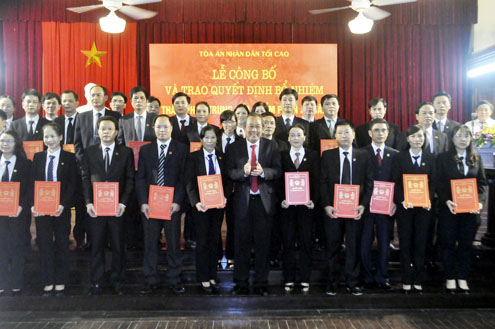
- New announcement on recruitment and rank promotion ...
- 11:49, 11/07/2024
-
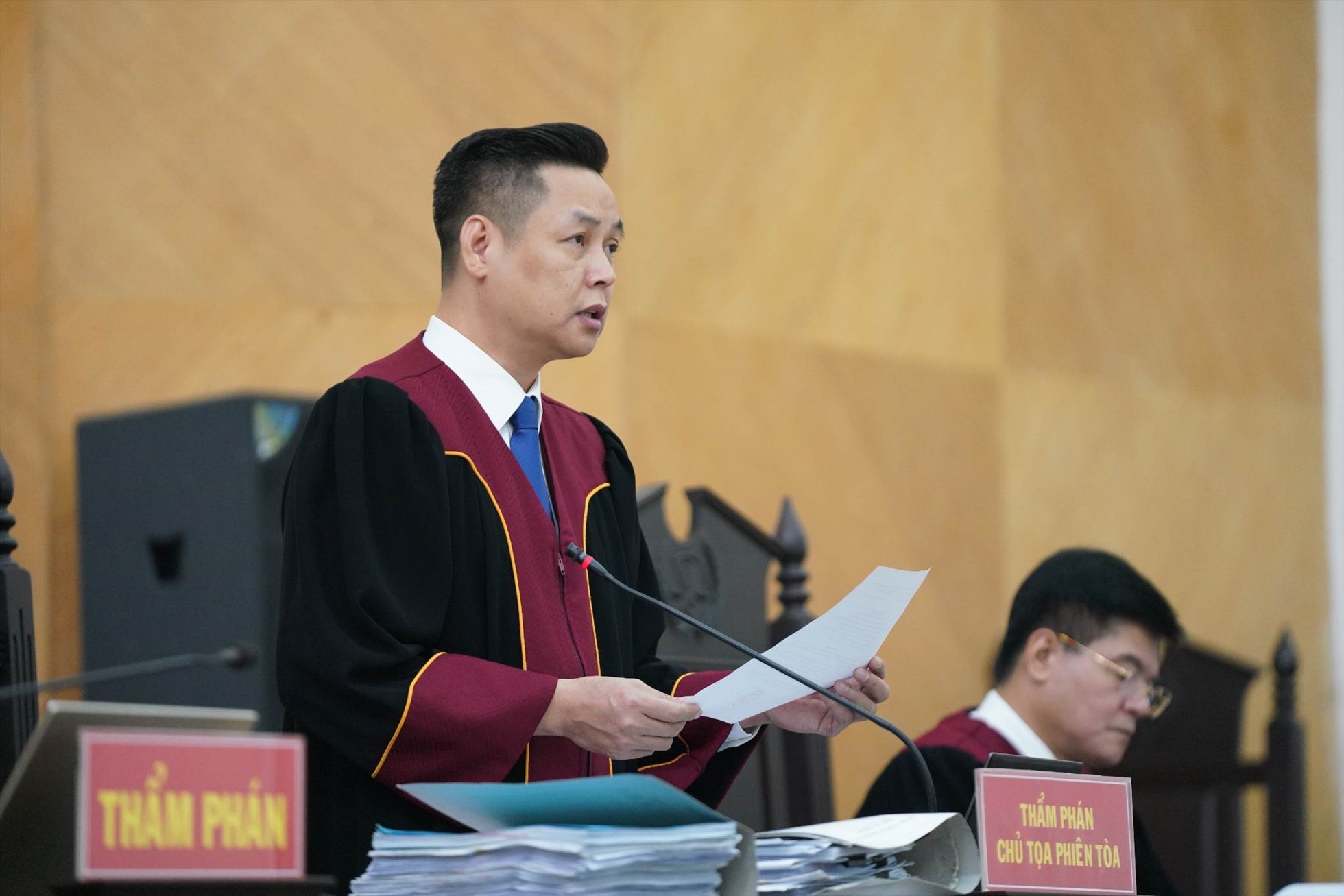
- Who is the judge? Conditions for appointment of ...
- 09:42, 27/03/2023
-
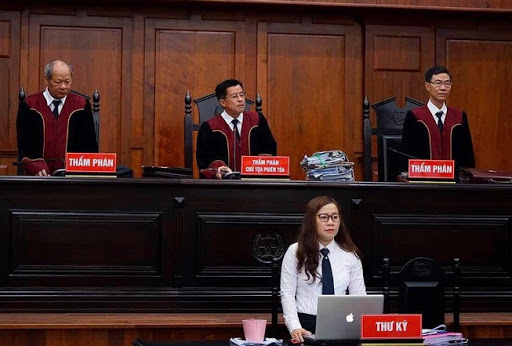
- 05 Criteria for assigning Judges to settle cases ...
- 16:06, 11/02/2023
-
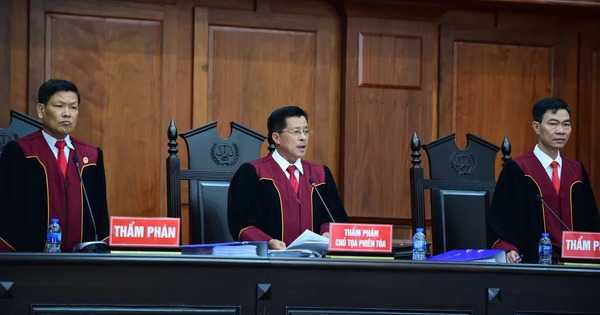
- Order of making a list for assigned judges to ...
- 17:43, 05/01/2023
-
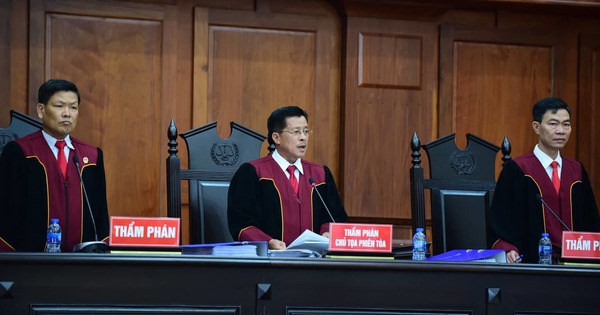
- Criteria for assigning Judges to settle cases ...
- 09:08, 03/01/2023
-

- Notable new policies of Vietnam effective as of ...
- 16:26, 11/04/2025
-
.Medium.png)
- Notable documents of Vietnam in the previous week ...
- 16:21, 11/04/2025
-
.Medium.png)
- Notable documents of Vietnam in the previous week ...
- 16:11, 02/04/2025
-
.Medium.png)
- Notable new policies of Vietnam to be effective ...
- 16:04, 02/04/2025
-
.Medium.png)
- Notable new policies of Vietnam effective from ...
- 14:51, 21/03/2025

 Article table of contents
Article table of contents
